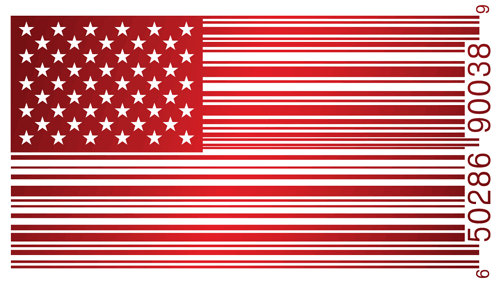Submitted by Mary Bottari on
Guest piece by Greg Colvin, Campaign for America's Future
Introducing the Citizens Election Amendment, Version 1.0.
Since the U.S. Supreme Court decided the Citizens United case exactly one year ago tomorrow, saying that the Constitution gives  , people have been asking "how can we amend the Constitution to put this right?"
, people have been asking "how can we amend the Constitution to put this right?"
In this country, each person has one vote, no matter whether you are rich or poor. And it is illegal to buy or sell a person's vote. So why do we allow electoral influence to be bought and sold? Why has politics in America become a commodity in an economic marketplace, where the richest corporations, business associations, unions, and individuals can buy enormous leverage on the outcome of our elections?
It is not enough to declare that corporations are not legally persons, or to give Congress and the states the power to regulate the political contributions and expenditures of corporations and labor unions. Those are only partial remedies.
Past attempts to regulate campaign finance in America have been like the "squishy balloon" -- squeeze it in one place, it pops out another. Limit what goes to candidates, it goes to parties. Clamp down on party fundraising, it goes to independent 527s. Disclose donors to 527s, the unlimited, anonymous money goes to 501(c)(4)'s. All the while, wealthy individuals still spend huge amounts to seek their own elections and force their opponents to try to match them.
The only way to drive big money entirely out of politics is to adjust our system of campaign finance to the scale of the individual voter, who has one vote to cast for each office or measure, and no more. The only source of money to influence American elections should be the individual citizen and, at the option of the federal or state government, public financing.
Congress and the States, if they choose to, should be able to limit the amount each citizen can donate or spend to influence a specific vote, including a candidate's own personal expenditures in pursuit of public office. This could be capped at a modest amount per vote, like the median annual household income in America, currently about $50,000. Why should anyone be allowed to contribute or spend more than that to persuade others how to vote?
What follows is a draft of a Twenty-Eighth Amendment to the U.S. Constitution that would enable a thorough, citizen-based, reform of our campaign finance laws. Some may say this is far-fetched, but it may serve as a marker showing how we could—if we wanted to—completely prevent corporate and personal wealth from dominating elections in our free republic.
Amendment XXVIII: "Citizens Election Amendment" Version 1.0
Section 1. Only natural persons who are citizens of the United States may make contributions and expenditures to influence the exercise of a citizen's right to vote, although Congress and the States may also institute systems of public financing for election campaigns.
Section 2. Congress and the States shall have concurrent power to implement this article by measures that may set limits on the amounts of each citizen's contributions and expenditures, including a candidate's own spending, and authorize citizens to establish committees to receive, spend, and publicly disclose the sources of contributions and expenditures, and by other appropriate legislation.
Points to note:
- Campaign donations and spending by all sources other than individual citizens would be eliminated: corporations (whether for-profit or nonprofit), labor unions, business associations, banks and trusts, foreign donors and multi-national conglomerates, but public financing would be permitted.
- The amendment would apply to all citizen votes held at all levels of government—federal, state, and local—on the nomination and election of candidates for public office and on ballot measures as well.
- In order to finance election campaigns, the political parties, labor unions, business associations, and other interest groups would have to become skilled aggregators, convincing individual citizens to donate what they could afford within such limits as Congress or the states may enact. Citizens sharing common political interests could aggregate their donations in committees, which could be controlled by candidates or parties or could be independent.
- Hopefully, Congress and the States would move toward a single nationwide interpretation of the phrase "to influence the exercise of a citizen's right to vote," such as the Internal Revenue Service definition of "political intervention" that applies to all tax-exempt organizations and taxpayers, if that standard could be clarified and improved. (Colvin, "Political Tax Law after Citizens United: A Time for Reform," The Norman A. Sugarman Memorial Lecture in Nonprofit Law at Case Western Reserve University, Cleveland, Ohio, April 2010, published at 66 Exempt Orgs Tax Rev 71 (July 2010), http://www.adlercolvin.com/attorneys/gregory-colvin.php and video at http://www.youtube.com/watch?v=9ymS7qvvo6U)
- This amendment expands, elevates, and protects the rights of the citizen voter to be the sole source of campaign funds, ensuring the democratic character of our elections.
Greg Colvin is an attorney in San Francisco specializing in tax-exempt law, including political and lobbying activities of nonprofit organizations, who has written and lectured on the subject for over 20 years.


Comments
Anonymous replied on Permalink
1. I'm concerned about the
Anonymous replied on Permalink
corporations
GreyGeek replied on Permalink
re: corporations
prehumous replied on Permalink
corporation contributions
E. A. Blair replied on Permalink
I've Been Saying This Since Citizens United Passed
suzanne81 replied on Permalink
amendment
Anonymous replied on Permalink
28th amemdment
Anonymous replied on Permalink
re: contributions for political gain
Mutternich replied on Permalink
So, can you prove...
Anonymous replied on Permalink
Mutternich.....not true
Pages